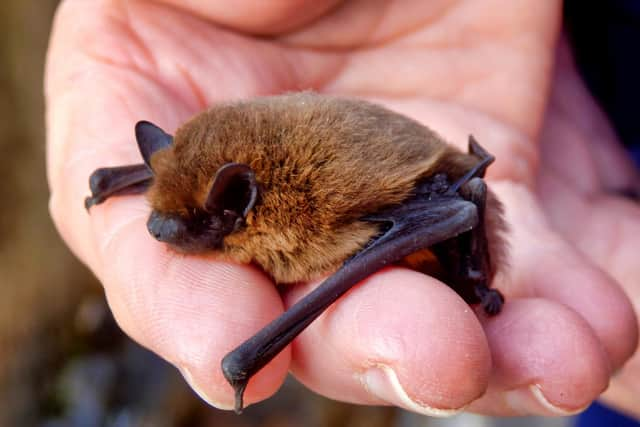It's a case of sonar so good for Cranfield University after finding tiny bats at historic hangars
and live on Freeview channel 276
Residents small enough to fit into a matchbox caused huge challenges during a decarbonisation project at Cranfield University.
Contractors found the unexpected guests – possibly brown long-eared bats or pipistrelle bats – while they were in cherry pickers working on low-carbon upgrades at the two wartime RAF hangars which immediately brought work to a halt.
Advertisement
Hide AdAdvertisement
Hide AdThey had made their home in the wall cavity between the exterior and interior brickwork and although well-known in other areas of the campus, they’d never been seen in these historic buildings. But instead of driving workers batty, the university came up with a nifty workaround.


Head of development and projects at Cranfield University, Tracy Flynn, said: “We sought advice from an expert in the field of ecology to see what their recommendations would be before we made any decisions on how we could next progress.”
And instead of just winging it, they continued with the works but with a five-metre exclusion zone around where the bats had been seen. They even introduced a one-way door system near the area the bats were using.
And they installed three bat boxes to act as alternative homes when their hibernation comes to an end.
Advertisement
Hide AdAdvertisement
Hide AdAll works – which include replacing the old boilers with low-emission heat pumps – are now back on track and due to finish by the end of March.
Tracy added: “By revising our schedule, as well as working closely with our contractors and ecology experts, we were able to continue our work whilst ensuring there would be no disruption to the bats’ chosen home.
“Our approach exemplifies the university’s commitment for a bio-diverse campus, and the importance of resilience in overcoming unforeseen challenges.”
The decarbonisation works are part of the Public Sector Decarbonisation Scheme which is run by the Department for Energy Security and Net Zero and delivered by Salix Finance.
Pipistrelle bats are the UK’s smallest and most common bat. Matchbox-sized, they usually roost in tree holes, bat boxes, as well as in the roof spaces of houses.